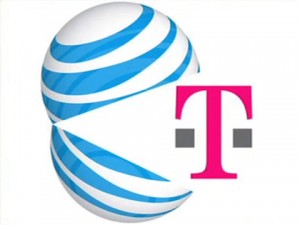 The tablet computer made great strides in transitioning from tech toy to legitimate business tool in 2011. Early adopters have been learning how tablets do and don’t work in enterprise settings, while dealing with the new challenges that a tablet-equipped workforce can present in terms of network security, IT cost control and telecom cost management.
The tablet computer made great strides in transitioning from tech toy to legitimate business tool in 2011. Early adopters have been learning how tablets do and don’t work in enterprise settings, while dealing with the new challenges that a tablet-equipped workforce can present in terms of network security, IT cost control and telecom cost management.
Whatever their pros and cons, tablets are quickly becoming entrenched in the business environment, and their presence will continue to grow this year and next. In fact, Apple CEO Tim Cook has predicted that unit sales of tablet computers will overtake sales of PCs relatively soon. The unique capabilities of tablets are expected to drive business innovation, as well as leading to changes in other classes of electronic devices as tablets take over functions that they can perform better.
Apple has led the tablet revolution for both home and business use and now dominates the sector with nearly two-thirds of tablet sales worldwide. With its third-generation iPad on the verge of rolling out, Apple shows no sign of losing its lead position in the tablet market. Having sold 55 million iPads through the end of 2011, Apple is set to exceed that number this year alone. Forrester Research, a business technology and marketing consultant, predicts that companies will buy $10 billion worth of iPads in 2012, and another $16 billion worth of them in 2013.
The tablet occupies a unique niche between the laptop and the smartphone, combining extreme portability with a screen that, unlike a phone display, is large enough to be practical for many business purposes. Tablets make data-intensive applications for teleconferencing and online collaboration more attractive and more likely to be used, making active telecom management practices important in order to keep costs contained. It’s essential to make sure that employees know and use strategies to stay within data plan limits and avoid unwittingly racking up large phone bills, especially when traveling.
For some workers, tablets have already displaced laptops (and sometimes even desktop computers), but tablets are not merely the same technology in a different package. One writer for Business Insider thinks that tablet computing will result in changes to business practices that are so fundamental and pervasive that he claims we’re at the dawn of “the iPad economy.” Even if you consider that label a bit hyperbolic, realize that many other tech observers also see tablet computers as a truly unprecedented, game-changing innovation.
Outside sales staff, because of their obvious need for portable computing, are often the first employees in an organization to be equipped with tablets. But companies have been trying them out for many other functions, too:
- Waste Management experimented with putting Samsung tablets in 20 of its trucks to provide drivers with route information and pickup instructions. WM could place tablets in 20,000 trucks by the end of the year.
- United Airlines has given its pilots digital flight manuals on iPads, making it unnecessary for them to keep bulky paper charts and documents in the cockpit.
- Siemens Energy technicians take iPads with them when they scale huge wind generators to perform maintenance and repairs.
Tablets have also shown up on retail sales floors, in warehouses and in corporate boardrooms, where they give company directors easy access to data and information formerly printed on paper and contained in books hundreds of pages thick.
Keeping up on the newest telecom and IT technology helps companies make the wisest and most cost-effective spending decisions. The telecom cost reduction experts at Telanalysis specialize in staying current with communications and IT technology and following developments in the telecom and IT industries. We put that knowledge to work for our clients, helping them to control spending and save money. Telecom audits by Telanalysis have been trimming costs for customers since 1985. Call Telanalysis today to arrange a free consultation for your company or organization at 866-300-6999.






 Although our day-to-day work focuses on telecommunications consulting, the people at Telanalysis also look beyond our business concerns to help the communities that we and our clients live in. Breast cancer affects families everywhere, afflicting hundreds of thousands of women (and even thousands of men) and killing tens of thousands every year. Telanalysis is stepping up its support of the fight against breast cancer by contributing to several charities that are dedicated to helping breast cancer patients and their loved ones, and to ultimately stamping out the disease.
Although our day-to-day work focuses on telecommunications consulting, the people at Telanalysis also look beyond our business concerns to help the communities that we and our clients live in. Breast cancer affects families everywhere, afflicting hundreds of thousands of women (and even thousands of men) and killing tens of thousands every year. Telanalysis is stepping up its support of the fight against breast cancer by contributing to several charities that are dedicated to helping breast cancer patients and their loved ones, and to ultimately stamping out the disease. One thing the field of technology excels at is generating new terminology and trendy buzzwords. The tech world changes and evolves so rapidly that it continually bombards us with unfamiliar new terms and acronyms. Quite a few of these frankly lack much real significance to everyday users, but “convergence” is a word that denotes a very real and important technological concept. Convergence will affect every kind of tech consumer and bring change to many business processes, including telecom management.
One thing the field of technology excels at is generating new terminology and trendy buzzwords. The tech world changes and evolves so rapidly that it continually bombards us with unfamiliar new terms and acronyms. Quite a few of these frankly lack much real significance to everyday users, but “convergence” is a word that denotes a very real and important technological concept. Convergence will affect every kind of tech consumer and bring change to many business processes, including telecom management. Telecommunications costs, as a share of the average enterprise’s total budget, long ago rose to the point that made telecom spending a top line-item expense for most businesses and organizations. As telecom and IT technologies converge, all the while growing increasingly more important to institutional users in business, education and government, telecom and IT spending for voice, video and data services will continue to go up.
Telecommunications costs, as a share of the average enterprise’s total budget, long ago rose to the point that made telecom spending a top line-item expense for most businesses and organizations. As telecom and IT technologies converge, all the while growing increasingly more important to institutional users in business, education and government, telecom and IT spending for voice, video and data services will continue to go up. Maintaining communication while doing business internationally is vital, but the cost of using voice and data services on your phone while outside the U.S. can be astronomical. Tales abound of travelers returning from overseas, or even just from a trip “next door” to Canada or Mexico, to find a bill from their cell-phone carrier exceeding $1,000 for a fairly modest amount of usage, or from background data usage that the phone’s owner didn’t even realize was taking place. With the help of a telecom consultant, a company can find the most economical and efficient way for employees traveling abroad to access voice and data services if necessary, and to avoid unnecessary and unwanted or “accidental” charges. This knowledge should be incorporated into an enterprise-wide policy on international telecommunications usage that is distributed to all employees who travel outside the U.S. Compliance can be monitored through active telecom management practices such as regular invoice reviews and phone bill audits.
Maintaining communication while doing business internationally is vital, but the cost of using voice and data services on your phone while outside the U.S. can be astronomical. Tales abound of travelers returning from overseas, or even just from a trip “next door” to Canada or Mexico, to find a bill from their cell-phone carrier exceeding $1,000 for a fairly modest amount of usage, or from background data usage that the phone’s owner didn’t even realize was taking place. With the help of a telecom consultant, a company can find the most economical and efficient way for employees traveling abroad to access voice and data services if necessary, and to avoid unnecessary and unwanted or “accidental” charges. This knowledge should be incorporated into an enterprise-wide policy on international telecommunications usage that is distributed to all employees who travel outside the U.S. Compliance can be monitored through active telecom management practices such as regular invoice reviews and phone bill audits. AT&T’s nine-month quest to acquire T-Mobile USA from its German parent company, Deutsche Telekom AG, ended with an official announcement from the American telecom and technology giant on Monday, December 19. The two telcos announced a merger plan in March that would have resulted in AT&T becoming the largest wireless company in the United States, ahead of the current number-one, Verizon.
AT&T’s nine-month quest to acquire T-Mobile USA from its German parent company, Deutsche Telekom AG, ended with an official announcement from the American telecom and technology giant on Monday, December 19. The two telcos announced a merger plan in March that would have resulted in AT&T becoming the largest wireless company in the United States, ahead of the current number-one, Verizon. In business, what you don’t know certainly can hurt you. That’s especially true when you’re paying for telecommunications services. The billing practices and patterns of the telecom carriers could put a significant but avoidable extra financial hit on your organization unless you practice active telecom expense management and have the expertise to know what to watch out for.
In business, what you don’t know certainly can hurt you. That’s especially true when you’re paying for telecommunications services. The billing practices and patterns of the telecom carriers could put a significant but avoidable extra financial hit on your organization unless you practice active telecom expense management and have the expertise to know what to watch out for. Who’s keeping an eye your business’s telecom spending? Telecommunications management duties often fall to more than one individual in an office or enterprise, and organizational realities may mean that they’re not all communicating with each other. It may very well be that no one really has an overall picture of what your company is spending on telecom, let alone what it’s getting for the money.
Who’s keeping an eye your business’s telecom spending? Telecommunications management duties often fall to more than one individual in an office or enterprise, and organizational realities may mean that they’re not all communicating with each other. It may very well be that no one really has an overall picture of what your company is spending on telecom, let alone what it’s getting for the money. AT&T and T-Mobile USA say they’re not yet giving up on plans to merge into the country’s largest wireless carrier in spite of the fact that the two telecom giants took the step over the holiday weekend of withdrawing the applications they filed earlier this year with the Federal Communications Commission. Many telecommunications consultants have doubted all along that the merger would actually go through because of opposition from both the FCC and the U.S. Department of Justice.
AT&T and T-Mobile USA say they’re not yet giving up on plans to merge into the country’s largest wireless carrier in spite of the fact that the two telecom giants took the step over the holiday weekend of withdrawing the applications they filed earlier this year with the Federal Communications Commission. Many telecommunications consultants have doubted all along that the merger would actually go through because of opposition from both the FCC and the U.S. Department of Justice. Telecommunications has evolved into such a crucial and indispensable part of business infrastructure that it’s typically among the five largest line items in a company’s budget today. For many businesses, total telecom spending even rose significantly during periods when unit pricing for telecom equipment and services was dropping because of advances in technology. In other words, increased use of telecommunications services more than offset the deflation in tech prices. Unfortunately, surveys have shown that telecom management is also one of the areas where a majority of corporate officers feel the least competent.
Telecommunications has evolved into such a crucial and indispensable part of business infrastructure that it’s typically among the five largest line items in a company’s budget today. For many businesses, total telecom spending even rose significantly during periods when unit pricing for telecom equipment and services was dropping because of advances in technology. In other words, increased use of telecommunications services more than offset the deflation in tech prices. Unfortunately, surveys have shown that telecom management is also one of the areas where a majority of corporate officers feel the least competent.